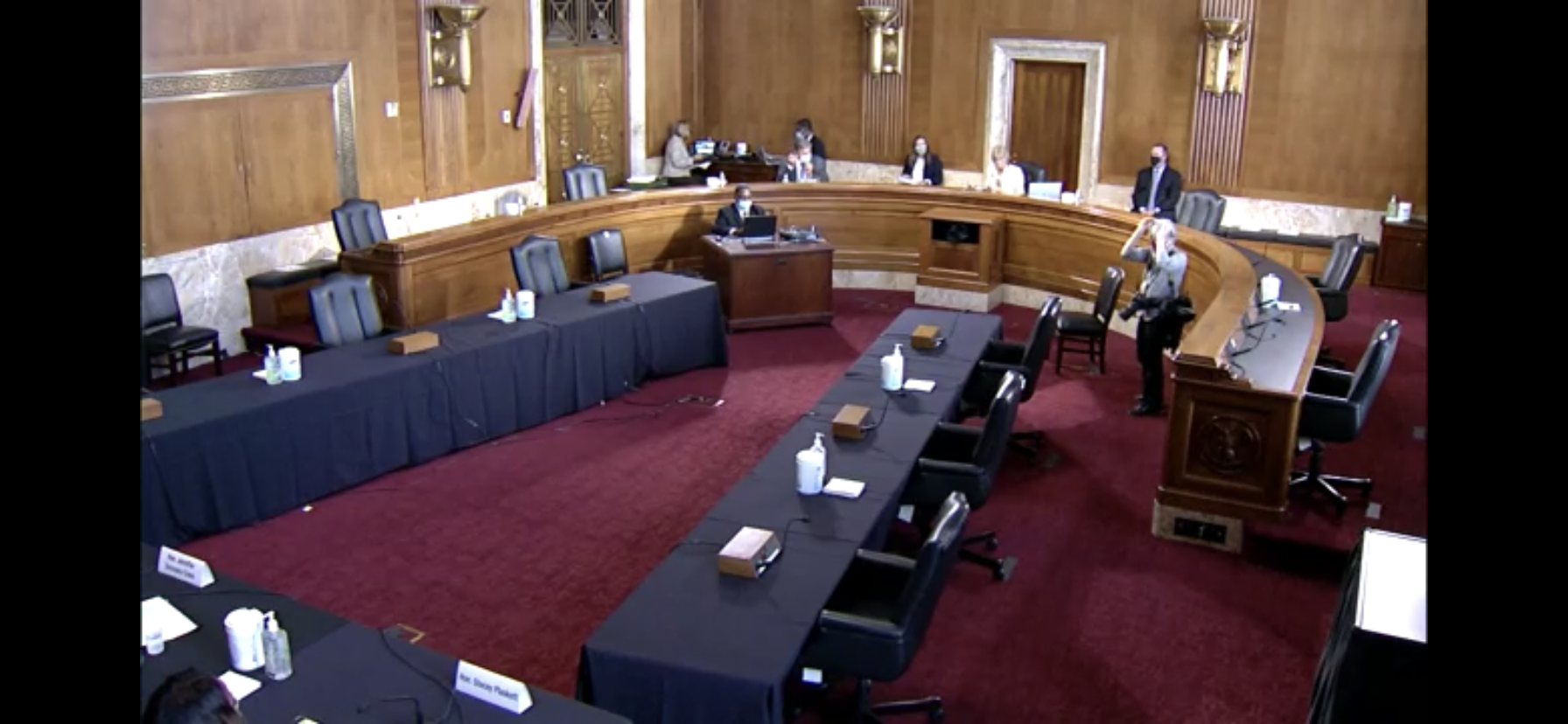U.S. states face major challenges now and in the future as the COVID-19 pandemic progresses, but U.S. territories face their own set of unique difficulties due to their geography, economies, and limited rights.
The U.S. Senate Committee on Energy convened yesterday at the U.S. Capitol to discuss these difficulties, and listen to delegates from the territories explain what aid and legislation Congress may need to provide moving forward.
Some of the territories have been lucky enough to have avoided large numbers of coronavirus-related cases and deaths. In fact, the Northern Mariana Islands have recorded only two deaths and have gone almost three weeks without any new cases. American Samoa is the only place, among U.S. states and territories, to have not seen a single reported case of COVID-19.
When Ranking Member Sen. Joe Manchin (D-WV) asked the panel how they had managed to keep infection rates manageable, the representatives cited the early and total closure of their territories’ borders as the main method of keeping the virus out.
Rep. Amata Coleman Radewagen (R-AS) pointed additionally to a total shutdown of commercial flights still in place as the major reason for keeping the number of virus cases that her territory of American Samoa to zero.
Rep. Stacey Plaskett (D-VI) stated that the Virgin Islands’ closure of hotel rooms helped prevent a large number of travel-related cases–and that constituents are more adept at obeying national emergency orders than, say, U.S. states that don’t normally suffer from natural disasters.
“Virgin Islanders, like the other territories, are used to disaster–so when the governor says everything is shut down, people usually comply,” said Plaskett.
For all the wins on the containment of the spread of the virus, however, the territories are dealing with staggering negative economic impact.
The complete closure of the territories’ borders has driven a stake straight through the heart of these islands’ economies: tourism.
Plaskett emphasized the importance of tourism in the Virgin Islands in her testimony.
“The Virgin Islands is highly dependent on the tourism industry. It generates 30 percent of the territory’s [GDP] and employs 25 percent of its civilian labor force,” said Plaskett. “Due to reduced tourism revenues because of the COVID-19 pandemic, the territory is suffering even more devastating economic losses than other U.S. jurisdictions.”
Rep. Jenniffer González-Colón (R-PR) cited similar statistics, stating that inbound tourism accounts for 10 percent of Puerto Rico’s economy.
Rep. Michael San Nicolas (D-GU) reiterated that tourism drives Guam’s economy, with the island seeing an explosion in tourism in the last few years–until the pandemic hit.
Rep. Gregorio Kilili Camach Sablan (D-MP) acknowledged the sad truth of the Northern Mariana Islands that most of the territories are facing–tourism can no longer be the sole driver of the territories’ economies.
“I think we must face the reality that we may never again exclusively base our economy on short-term, mass tourism—and find alternatives,” Sablan said.
Sablan suggested several viable examples of diversification, one of which included the Marianas as a future base for Denver company InteliSecure, a cybersecurity company.
Sen. Cory Gardner (R-CO) is a member of the committee and may have been in attendance, though he did not speak during the hearing.
The economic fallout in the U.S. territories has wreaked havoc on all areas of life. Massive jumps in unemployment, food shortages, housing crises, a toll on healthcare, and inequity between territories and states are clashing to reveal how previously-broken systems on the islands are now completely failing their constituents.
In Guam, unemployment rates jumped from four percent before the pandemic, to over 50 percent, according to San Nicolas.
“Right now, because unemployment has taken so long to roll out, we literally have people lining up at two in the morning in their cars, waiting for food assistance to get handed out,” San Nicolas said. “And they’ll wait for four hours, and then when they show up–they finally make it up to the front of the line–food’s out.”
As large numbers of U.S. nationals and citizens on these islands lose their jobs, and are threatened by a global health crisis, the difference between the states’ privileges and the territories’ lack thereof becomes clear.
The territories all operate under a Medicaid spending cap, meaning that, any money spent by the territory on Medicaid above the cap will not be matched with federal aid.
This cap does not exist for states–in fact, states with the highest poverty rates get the highest percentage of federal matching. The five U.S. territories all rank as the five poorest entities in the U.S.
Legislation has been introduced into the House to repeal this spending cap–but the economic inequities don’t end there. According to Plaskett, despite the U.S. Virgin Islands being one fifth the population size of Wyoming, it only received one-seventeenth of the funding from the Coronavirus Relief Fund under the CARES Act.
San Nicolas criticized the “discriminatory exclusion of the territories from [Supplemental Security Income (SSI)],” bluntly stating that the lack of the “staple of American decency” is putting seniors and the disabled at risk, and putting a strain on families who must provide for such at-risk individuals.
Even the role of the territorial representatives as non-voting delegates in the U.S. Congress highlights the lack of equal representation for the territories.
Some territories have been suffering from a large number of catastrophes, which makes the bureaucratic system in place for territories that much more difficult.
Puerto Rico, for instance, suffers not only from widespread poverty, but has also recently endured Hurricane Maria, political scandal, and earthquakes.
Small municipalities don’t receive disaster aid, which González-Colón criticized, pointing out that there is money waiting to be spent on fixing those municipalities, that could not be spent.
Sen. Joe Manchin (D-VA) took interest in this red tape issue. “I’ll see if we can help you on that,” said Manchin. “That’s crazy.”




